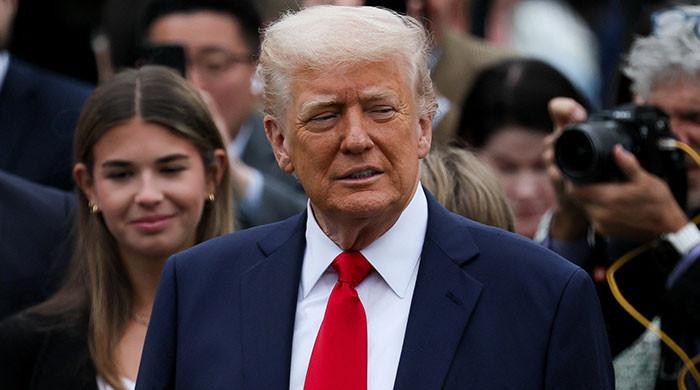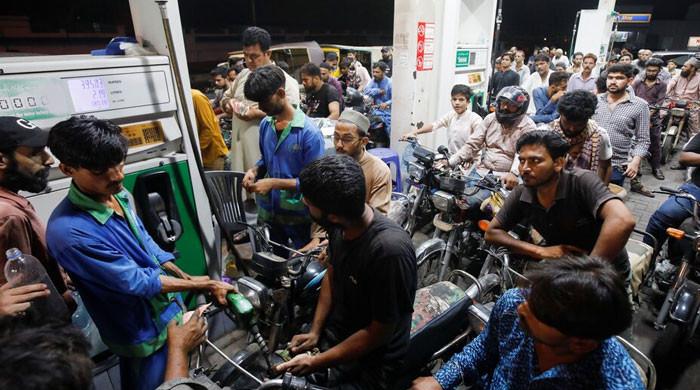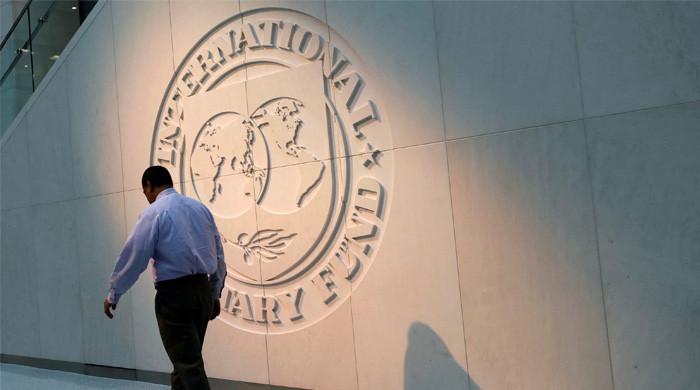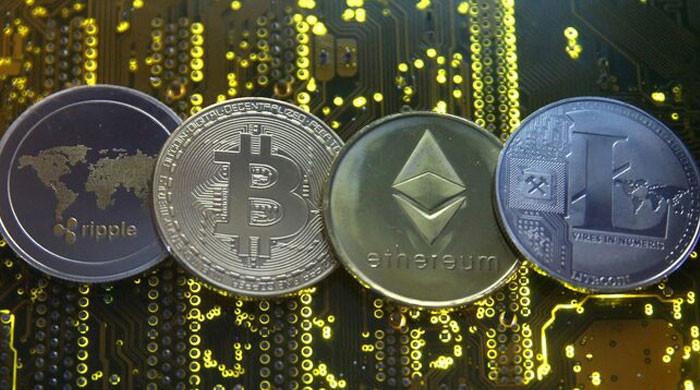Meesha Shafi, Ali Zafar case: A media circus
Both Meesha Shafi and Ali Zafar’s lawyers must remember that their first duty is to assist the court and to plead the case objectively
May 17, 2019
The OJ Simpson trial of 1995, despite its various arresting sub-plots, is sometimes infamously referred to as a “great trash novel come to life” and for good reason too. It was the first time in American history that an A-list celebrity was on trial for murder. It had everything; from a surreal car chase, where Simpson tried to abscond prior to the trial, to his defence “Dream Team” led by the flamboyant Johnnie Cochran, who spun an arresting narrative of race by accusing an already tainted Los Angeles Police Department (the LAPD) of planting incriminating evidence containing Simpson’s DNA near the scene of the crime, a narrative that ultimately won a predominantly black jury over, who ignored material DNA evidence against Simpson and acquitted him.
A telling feature of the trial and a first in American jurisprudence was the Presiding Judge, Lance Ito’s decision of allowing media cameras to cover the entire court proceedings. This was bitterly criticized in spawning America’s reality television culture, where lawyers from both the prosecution and the defence exchanged brass tacks in the courtroom and outside, with the defence, in particular, liberally giving incendiary interviews, to a ravenous media lapping it all up. All this in the backdrop of the city of Los Angeles, already reeling from race riots stemming from police brutality in the aftermath of the Rodney King trial.
Judge Ito was criticized because he lost control by allowing the media to overwhelm the trial. Some claimed that he loved the attention of the cameras in the courtroom and that the celebrity nature of the proceedings contributed in him ceding to the chaos that unfolded.
Pakistan currently faces a celebrity stand-off of its own. In April 2018, musician Meesha Shafi claimed on social media that Ali Zafar, an iconic name in Pakistan’s media industry, allegedly sexually harassed her. With the spectre of the #Metoo movement looming in the backdrop, the accusation spawned a maelstrom of accusations, including predatory behaviour and opportunism. Social media, ever the great polarizer, has brought the case firmly under the microscope, along with the toxic views that accompany it.
On the legal front, while Ali Zafar filed a defamation case against Meesha Shafi, claiming damages for sullying his reputation and character, Shafi initiated proceedings against Zafar for sexual harassment under the Protection of Women Against Harassment Act, 2010.
Cases involving celebrities are significant because they shape jurisprudence due to the unending scrutiny in such matters. Workplace harassment is a case in point. It is an untested, new area of the law, with the legislation in its infancy. It matters because so much of harassment in the workplace is unreported, where victims are told to hush up the matter or subject to arbitrary inquiry proceedings, where the organization is keen to hush up, rather than objectively investigate the matter. Another dimension to this case is that if Meesha Shafi’s harassment against Ali Zafar is unproven, would he have an adequate remedy of damages in the defamation suit filed against her? Legal practitioners are well aware that defamation proceedings are usually on life support, with unending proceedings in limbo.
For the moment, it is events outside the proceedings that have taken centre stage. They commenced with the legal counsel of Meesha Shafi declaring on live television that the Ombudsperson, which is the adjudicating authority for harassment cases under the 2010 Act, dismissed the case for “technical reasons.” The Ombudsperson observed that Meesha Shafi was not an employee of JS Events under the 2010 Act, the entity which Shafi claimed was the employer/organization of the event, where the alleged harassment took place.
The Ombudsperson reached this decision on a plain reading of her contract with JS Productions, which had terms disavowing an employer-employee relationship and thus the claim lacked jurisdiction. An appeal to the governor has upheld the decision of the Ombudsperson on the same grounds, and is currently challenged before the Lahore High Court (LHC), by way of a writ petition.
In many ways, the decision may be criticized as imbuing a restrictive definition of the Act. There are various judgments of the superior courts that have held that persons hired on a contract may be the employees of an organization, for the purposes of providing them rights under the law. The Ombudsperson could have gone beyond the literal meaning of the word “employee” and used a purposive approach of amplifying the scope of an employee to include persons hired on contract. It would have then placed the duty on JS Productions to investigate the allegations of harassment, on the premise that it owed a duty of care to the individuals contracted for that session. These are legal grounds, amongst others that the high court has to consider in either affirming or setting aside the Ombudsperson’s decision.
On the flipside, it is inaccurate and erroneous to cite the Ombudsperson decision to be a “technical one”. Prima facie, the Tribunal has applied the law under the 2010 Act and held that the case does not fall within its purview. This decision may set a marker that the Ombudsperson’s jurisdiction only extends to and is restricted to employer/employee relationships, and it is equally likely that the superior judicial forums see it this way as well. If this restriction is expanded, the same shall require legislation or liberal judicial interpretation. A technical dismissal underscores the impression that the law wasn’t applied correctly or holistically. It may be the case that a higher judicial forum may uphold the decision of the Ombudsperson on exactly the same grounds. To give an impression to the contrary is misleading and unhelpful.
On to Ali Zafar. He has been in the spotlight for giving emotionally charged interviews on private television channels, stridently proclaiming his innocence to the public at large and excoriating Meesha Shafi. The remarks have been unnecessary and unwarranted.
Significantly, they are, prima facie, in violation of the judgment of the supreme court pertaining to sub judice matters reported as Suo Moto Case No: 28 of 2018 (PLD 2019 SC 1). The supreme court, in this case, has laid down the principle that sub-judice matters before the media have to be discussed in an objective and a non-biased manner, and anything to the contrary may jeopardize the other party’s fundamental right to be tried by an impartial judiciary or an unbiased judge.
Significantly, Ali Zafar’s interviews have sometimes ignored the factual position of the case. To quote an example, Ali Zafar alleged that Meesha Shafi has “lost the case”, whereas she retains her constitutional right to challenge the verdict before the higher courts, an option that she’s already exercised. No case is lost until it is finally adjudicated by all the relevant forums.
He also claimed that she initiated the harassment action for international recognition or for the lure of foreign citizenship, claims which are speculative, polarising and lack a proper factual basis. The supreme court goes on to hold that a sub judice matter must not be discussed in a manner that is likely to result in a pre-judgment or forming of an opinion to the disadvantage of the other party, or the judge hearing the case. These are strict guidelines, which his legal team has either chosen to ignore or have not adequately advised against.
Screenshots of phone conversations involving Meesha Shafi have also been shared by his lawyers to the general public, potentially prejudicing evidence that may be relevant in the proceedings in the future.
The above is problematic because it may potentially sway a judge’s view in favour of a party who are in any way immune to public pressure or sentiments. Public perception of events matter. With so much electronic media outreach as well as an already ubiquitous social media, the inflammatory interviews take centre stage with the public already making up its mind that a party is guilty and needs to be hung, drawn and quartered. Thus, phrases like “a technical judgment” or declaring that “X has already lost the case” are premature and unhelpful because they don’t convey the true legal reasoning of the court, which is only available in the judicial orders themselves.
Our judiciary, not unlike other institutions of the land, is not immune to sound-bytes and tickers. Suo moto actions by the apex court have been in the past, and may for the foreseeable future, continue to be taken on breaking news segments and social media outrage.
Lawyers, despite their licenses restricting advertising of their services, liberally use social media to vociferously champion their client’s causes. If the client is a celebrity, or if the case captures the public imagination, the social media press conferences go into overdrive, with a play-by-play rendition of proceedings claiming victory, often without nuance or context.
Contrary to public perception, where lawyers are traditionally lampooned for trying every trick in the book for victory, a first duty of the lawyer is towards the court, even before his/her client. A lawyer is duty-bound under his license to assist the court to the best of his ability in narrating his client’s point of view. In such matters, he needs to advise and exercise moral judgment, not sacrifice it on the altar of the client’s needs. A lawyer may very well take on other social roles outside of the profession, but when he/she accepts a brief there is a duty to ensure that the case is pleaded objectively and fairly with the purpose of rendering as much assistance to the court as possible.
There is obvious merit in the argument that the legal system is broken; that justice is an elusive and nebulous construct where an arbitrary set of rules may favour the strong over the dispossessed. All the more reason, that in high profile cases, where jurisprudential issues may be adjudicated and become legal precedents, there is a duty placed on experienced and competent legal counsel to rein in their clients from making a circus out of judicial proceedings.
All eyes are on the Lahore High Court and potentially to the Supreme Court in the Ali Zafar/Meesha Shafi case. Make no mistake, there are serious questions of law that need adjudication here. The superior courts may rule on a restriction or an amplification of the Act. A useful judgment may also define the scope of punitive sanctions under the 2010 Act, if a case of harassment is made out, considering that the current penalties are applicable to persons in employment (removal from service, lowering of a grade etc), which are not relevant to this case. The effect of which may trigger a significant calling for amendments to make the law clearer substantively and procedurally, which is what robust and egalitarian legal systems, must always to aspire to do.
The media circus can and should wait.
Ali is a barrister in Lahore. He tweets at @RezaAli1980
Note: The views expressed are those of the author, and do not necessarily reflect the official policy or position of Geo News or the Jang Group.











